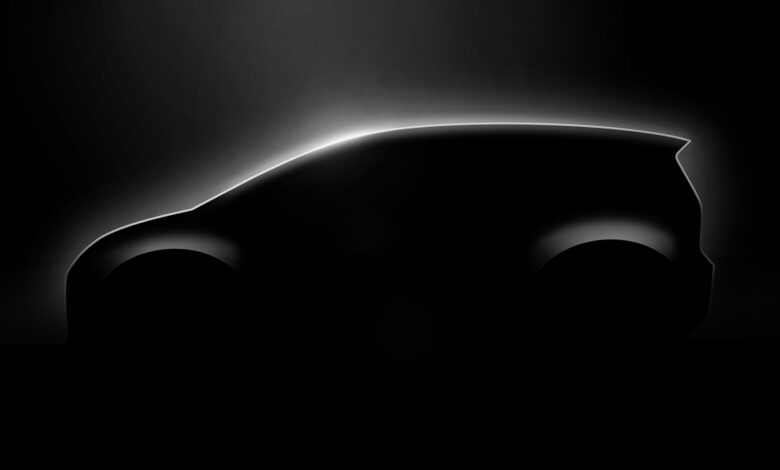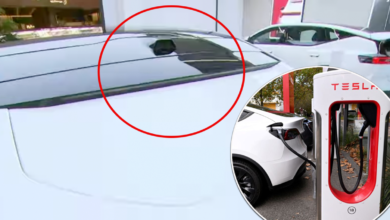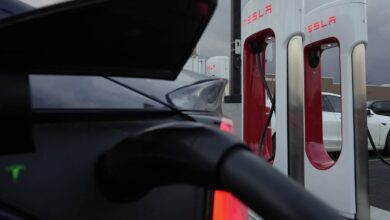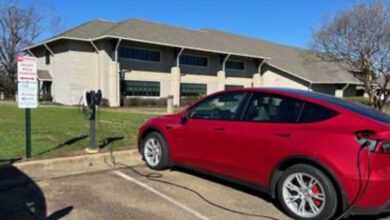Volkswagen Group confirms €20,000 EV

In the press release, VW states that it has “been working for some time to offer compact, particularly inexpensive electric vehicles in the price range of around 20,000 euros.” Notably, the press release was sent by Volkswagen Group Communications, not the VW brand. That is because “Group’s volume brands” will be using such vehicles to fulfil their promise to enable mobility for all and make it easier to get started with EVs. “With its brand diversity, the Volkswagen Group also assumes a social responsibility for affordable, sustainable mobility,” the press release states.
“Generations of people associate the strong brands of the Volkswagen Group with their first car – and with affordable mobility. As a group with strong brands, we continue to assume this social responsibility to this day,” says Oliver Blume, CEO of Volkswagen Group. “That’s why I’m very pleased that we’re launching a future-oriented project. It’s about entry-level electric mobility from Europe for Europe. In doing so, we combine a clear commitment to Europe as an industrial location, a European industrial policy and ultimately act in the interests of European customers.”
Short delivery routes – and probably no batteries from China
The cars will be built in Europe, which VW says ” in turn benefits Europe as an industrial location.” Another advantage is that long transport routes for components will be reduced and CO2 emissions avoided as a result.
However, the Group has not yet announced any details about the vehicle, which in the case of VW itself may be called the ID.1. It is therefore unclear which platform the vehicles will be based on and what key data is being targeted for the battery, range and charging system. As one of the biggest cost factors in an electric car, the battery is particularly important in this price segment. With the statement about short delivery routes, it seems rather unlikely that VW will rely on purchased battery cells from the Far East.
Thomas Schäfer, CEO of the Volkswagen brand, believes that building an EV with a 20,000-euro price tag will be a challenge but doable. “Despite the attractive price, our vehicles will set standards in the entry-level segment in terms of technology, design, quality, and customer experience,” he says. “This task has become more demanding due to rising energy, material, and raw material costs. One thing is clear: electromobility from Europe for Europe can only succeed with political support and competitive framework conditions.”
The announcement comes just two months after Schäfer announced at the company’s annual press conference that an electric vehicle with the working title ID.1 could hit the road. Apparently, it was already clear what the car would look like. The exact implementation and where the vehicle would be built still needed to be decided.
One scenario was a cooperation with Renault. But just last week, the French carmaker confirmed that weeklong talks did not turn into a deal. There is no explanation as to what that is. Volkswagen Group’s solo announcement indicates its upcoming electric city cars will be based on an in-house platform.
Range of up to 300 km?
As mentioned above, the manufacturer has not yet published any technical details. But there are already rumours. According to a report from British Car Magazine, the VW ID.1 could have a range of 300 km. The publication cites Schäfer saying that customers won’t find an electric car with a range of just 150 km very practical and that such a model wouldn’t offer a significant advantage over a PHEV.
Volkswagen Group also released a teaser of the first planned 20,000-euro electric car. The side profile looks inspired by the VW ID.2 SUV that will debut in 2026. It features more upright front and rear fascias, a more curvaceously sloping bonnet, and a shorter wheelbase. Pronounced wheel arches give the car a sporty look, and unlike those of the VW ID.2 SUV, they are circular, not squarish.
Like the “Electric Urban Car Family,” which will consist of the VW ID.2, VW ID.2 SUV, Skoda Epiq, and the Cupra Raval, the upcoming electric city car line-up may consist of multiple models. But that has yet to be officially confirmed. In March, Schäfer did say that there were four project teams working on the future EV.



